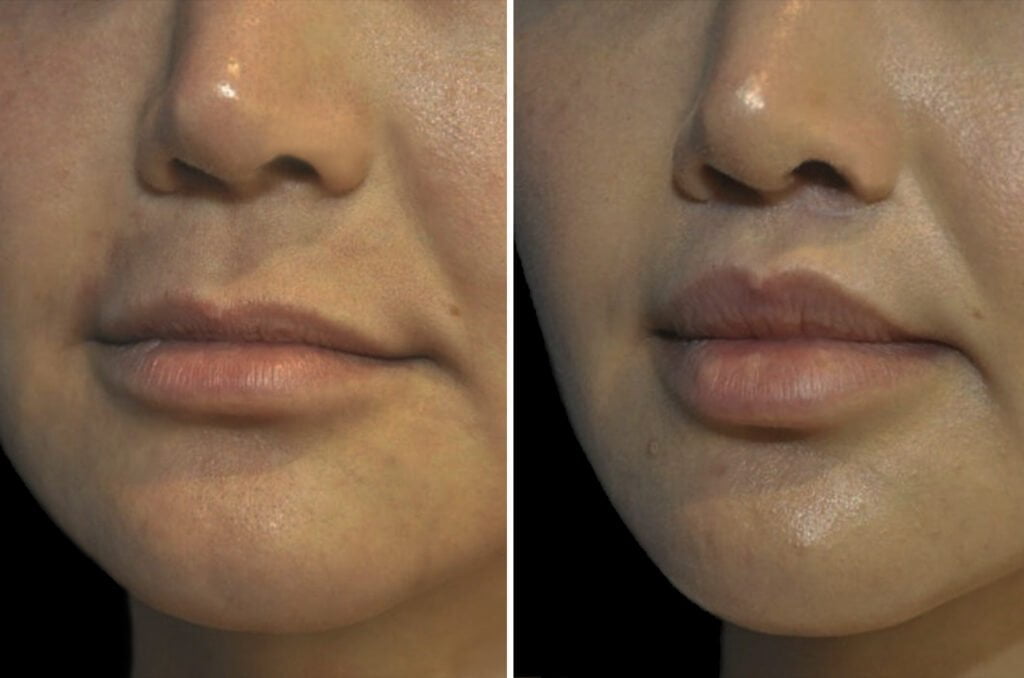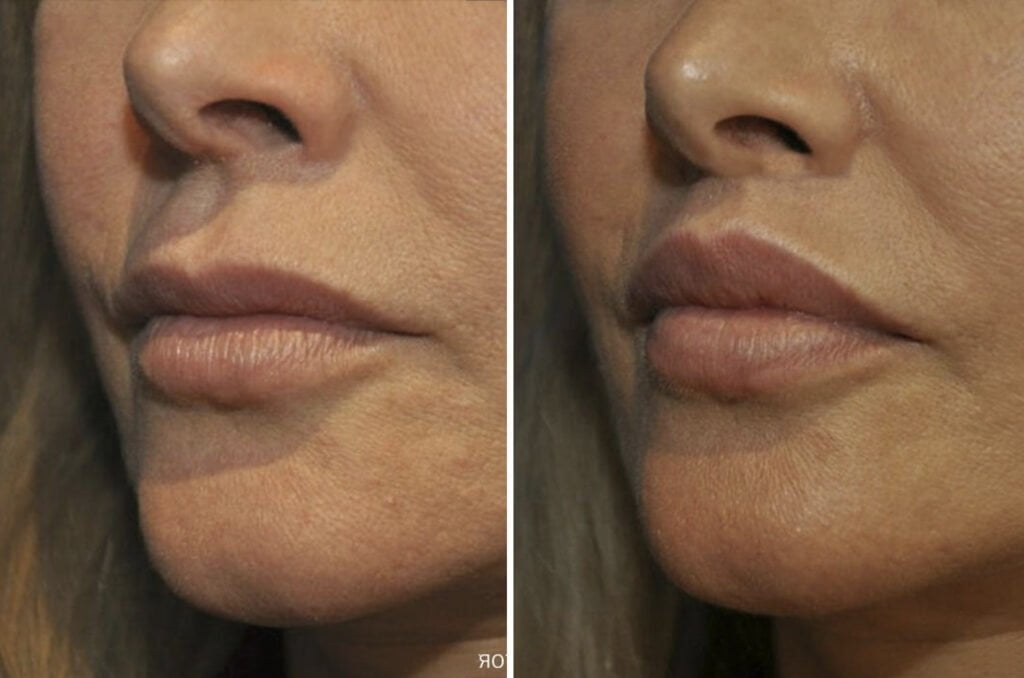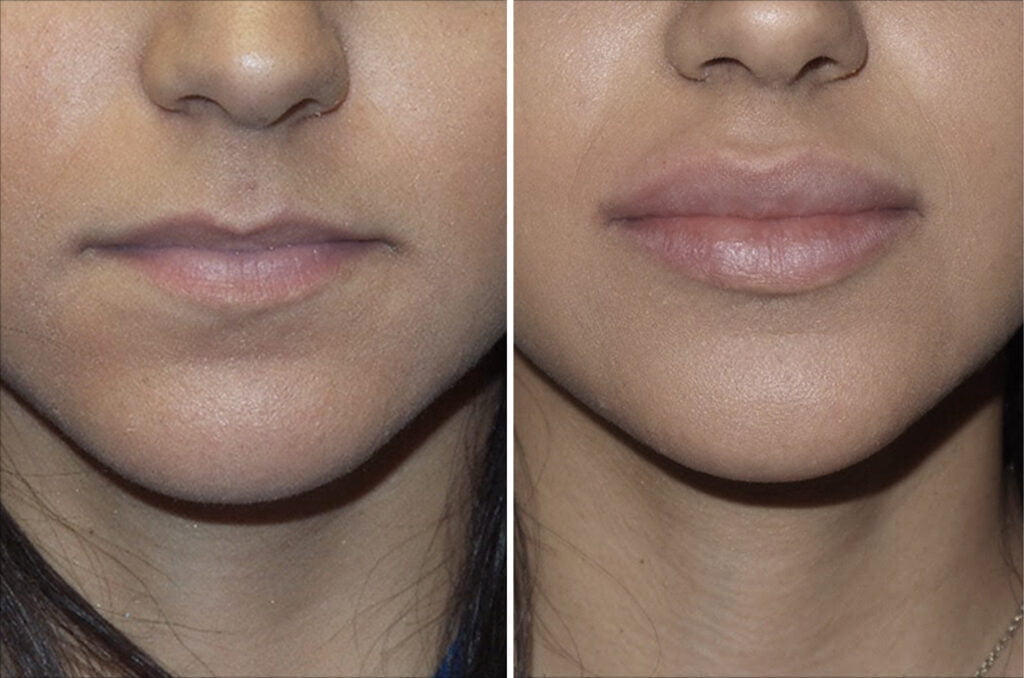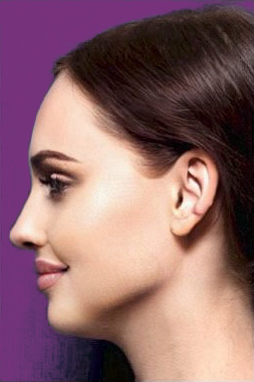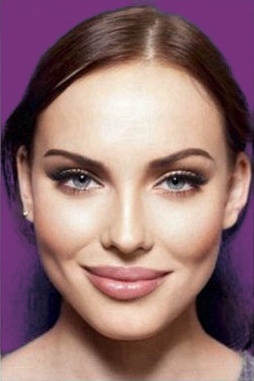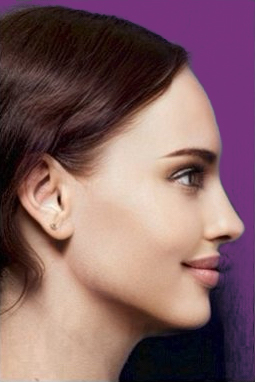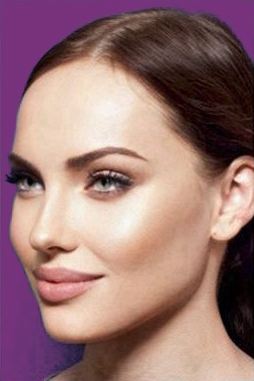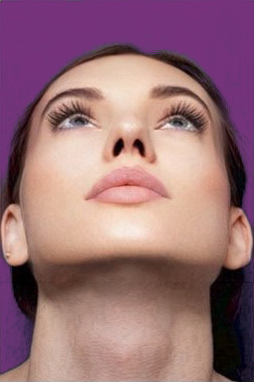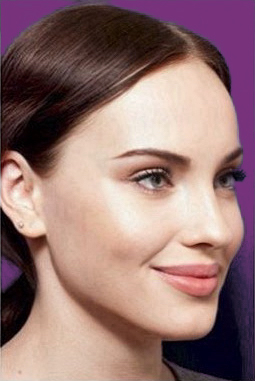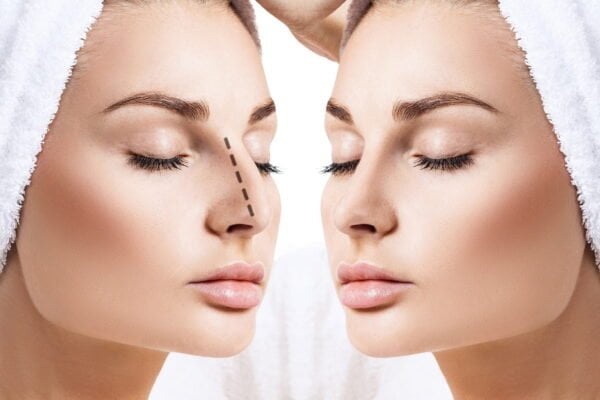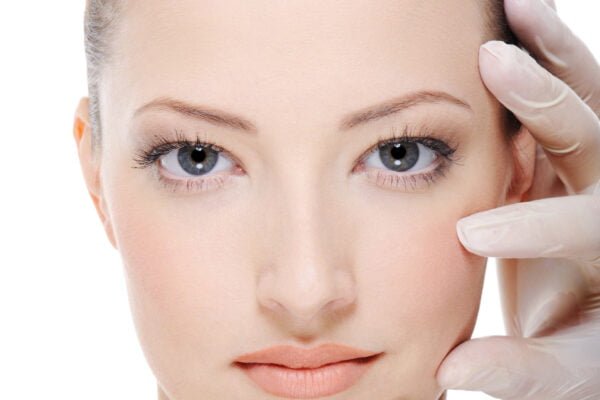Heiloplasty or, as it is also called “bullhorn”, is a surgery to lift and enlarge the upper lip. Unlike injectable techniques, the effect of “bullhorn” remains forever. As a result of the surgery, the “cupid’s arch” becomes brighter and the lower third of the face becomes younger and more proportionate.
During the procedure, a bullhorn-shaped incision is made above the upper lip just under the nose. A flap of skin is removed and the edges of the incision are stitched together, thereby lifting the upper lip and making it more voluminous. The incision should be very neat and inconspicuous, even “jeweler’s work”, since it is made on the face.
It is a minimally traumatic, short surgery that can be performed under local anesthesia on an outpatient basis, without the need to hospitalize the patient. “Bullhorn” is often combined with other types of plastic surgery, such as rhinoplasty or blepharoplasty.
It is better to refrain from the procedure if you have a strongly upturned tip of the nose — a thin strip of scar after surgery in this case may be noticeable.
The surgery will have to be abandoned in the following cases:
- under 18 years of age;
- chronic diseases in the exacerbation stage;
- blood diseases and coagulation disorders;
- cardiovascular diseases;
- oncologic diseases;
- autoimmune diseases;
- diabetes mellitus;
- acute infectious diseases;
- foci of inflammation or purulent diseases on the face;
- tendency to form hypertrophic or keloid scars;
- liver disease;
- epilepsy and mental illness;
- pregnancy and lactation.
The most important stage of preparation for surgery is diagnosis. Only after tests and examinations can we set a date for the surgery.
BEFORE SURGERY
- follow all my recommendations during the preparation phase, this is the most important thing;
- the key to the success of the surgery is the stable state of your health and optimistic attitude;
- do not hesitate to ask clarifying questions about the processes and stages of the surgery, which you do not understand or cause fear, it will add confidence in the successful result;
- postpone surgery even if you have minor symptoms of acute respiratory infections until you are fully recovered;
- smoking and alcohol consumption can impair your health and affect the rehabilitation process;
- if you are prone to bleeding or if you bruise frequently, tell me at your first consultation;
- one week before the surgery exclude the intake of all dietary supplements, vitamins;
- inform me in advance if you are taking any medications, including oral contraceptives.
The most important stage of preparation for any surgery — preliminary diagnostics. Only after taking the mandatory tests and undergoing examinations that will determine the presence or absence of contraindications to the surgery, you and I will be able to discuss the date of the surgery.
Diagnostic examinations:
- ECG with a cardiologist’s report;
- fluorography or chest X-ray;
Laboratory tests:
- general blood test (not older than 10 days);
- urinalysis (not older than 10 days);
- Coagulogram (not older than 10 days: ACTH, INR, prothrombin, fibrinogen, thrombin time);
- blood group, Rh factor;
- RW (Wasserman reaction), HIV, Hepatitis B and C (HBS, HCV), (not older than 3 months);
- Biochemical blood test (AlAT, AsAT, total protein, glucose, total bilirubin, creatinine, urea, electrolytes (K, Na, Cl), (not older than 10 days).
If minor abnormalities are detected, for example, in biochemistry, the surgery is still performed, but after prior medication preparation for rhinoplasty to normalize the indicators. If there are unforeseen, temporary or other health problems, the surgery should be postponed for your safety. Please do not forget to mention any “minor” health problems you may have.
Your health and safety are the most important things to me, that is why I only perform surgery when I am 100% sure there are no contraindications and I know your full medical history.
10 days before the scheduled date of surgery, I recommend completely exclude alcohol and 3 days — smoking cigarettes, which worsen healing and can provoke complications, as well as negatively affect the final result of the surgery.
Cosmetic procedures that aggressively affect the skin (chemical or deep peeling) are not recommended 14 days before the surgery, and 7 days before — visiting a solarium. If possible, eliminate inflammation or irritation on the face.
Also for 14 days you should temporarily suspend the use of anticoagulants (aspirin, heparin, vitamin C, cardiomagnil, thrombo-ACS, painkillers and antipyretics) and hormonal drugs, including contraception. If it is impossible to refuse any medication, be sure to inform me about it at the first consultation, so that I can give recommendations on how best to proceed in such a case: to exclude the drug, replace it or leave it as it is.
The surgery is performed on an empty stomach, so on the eve of the surgery after 8 pm nothing can be eaten! After 12 at night do not drink, even just water! From coffee and energy drinks I advise you to give up at least a couple of days before the surgery.
Menstrual cycle does not affect the surgery, I recommend my patients to plan the date of surgery on the 6th-8th day from the beginning of the cycle. If menstruation occurs earlier than expected, be sure to inform me and the anesthesiologist.
ON THE DAY OF SURGERY
- When going to the clinic for surgery, do not forget your passport and all tests in printed form (make copies in advance if you need a second copy).
- Do not use perfume, cosmetics and any means with a pronounced fragrance. Leave jewelry, valuables and money at home. You will definitely not need them at the surgery ????
- Remove everything from the nail of the forefinger on your left hand, including the false nail. This is necessary for attaching the pulse oximeter (a device to monitor blood oxygen saturation).
- Choose comfortable clothing that you will not have to take off and put on “over your head”. Clothing with zippers or buttons is best.
- If you have varicose veins, you will need compression stockings.
Take care in advance how you will get home from the clinic, because you will not be able to drive after the surgery.
Almost immediately after surgery, the patient goes home, and the stitches are removed a week after surgery. It is important to follow all of my recommendations to ensure a quick recovery.
POST-SURGERY REHABILITATION
Due to the low traumatic nature of the surgery, rehabilitation after the bullhorn procedure takes no more than 2 weeks and causes minimal discomfort. A slight numbness may be felt in the lip area. Postoperative swelling and bruising is virtually absent, a small stitch at the base of the nose is removed on 4-6 days after surgery and will be invisible after 1-2 months.
Full recovery after lip plasty takes no more than 10-14 days. During this period it is necessary to refuse to visit the bath and sauna, limit physical activity. After two weeks you can return to your usual way of life.
You deserve to be the best version of yourself, and my qualifications and experience guarantee a successful outcome! Just make an appointment for a free consultation, it will be the first step towards perfection.
HOW TO MAKE THE PHOTOS RIGHT
You need good quality photos for modeling (selfies are not suitable ????, ask someone to take a picture of you with the main camera). They should be taken in good even lighting, on a solid color background and should not be blurry. Send photos only through the form below, as any messengers will compress the photos and degrade their quality.
Send photos in all the angles shown in the example below ☝ and make sure that the hair does not cover the parts of the face we are interested in.



